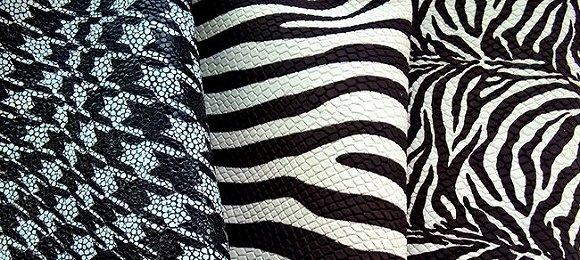
According to fashion network, citing Italian media Milano Finanza, Chanel has bought a majority stake in samanta, an Italian printed leather factory, after a year of acquisition negotiations. Chanel has increased its investment in the supply chain since 2018, and the acquisition will further strengthen Chanel's advanced leather supply chain. Chanel did not disclose the relevant amount and details of the acquisition, nor the specific share of the acquisition.
Samanta printed leather factory was established in the 1970s as a family business. Attilio gronchi, the founder of the leather factory, died in 2013, and his son Azzurra gronchi continued to operate. Samanta factory is close to Pisa, a city in central and Western Italy. It is a global leader in leather manufacturing industry. The factory specializes in printing and embossing leather, which is very important for Chanel at present.
 Chanel announced last year that it will no longer use crocodile skin, lizard skin, snake skin and other animal skins. In the future, its luxury products will depend on the creation of skilled craftsmen and designers within their capabilities.
Chanel announced last year that it will no longer use crocodile skin, lizard skin, snake skin and other animal skins. In the future, its luxury products will depend on the creation of skilled craftsmen and designers within their capabilities.
In a public statement, Chanel stressed that "samanta's professionalism and technology will bring real value to Chanel's business. Their exclusive expertise in leather printing patterns complements that of our other partners. This is what Chanel wants to support the development of tanneries. "
"Chanel and samanta have the same goal for the industry: together, they will play a synergistic effect among stakeholders in the leather industry. In line with Chanel's operation strategy in leather business, samanta will continue to work with its existing customers. Maintaining multiple customers will ensure the continuous development of the company's professionalism and innovation ability. "
Last year, Chanel doubled its investment from the previous year, spending more than $1 billion to ensure its top position in the luxury industry. Among them, Chanel invested US $234 million in the acquisition of external assets, including US $90 million for Colomer leather, a Spanish leather manufacturing plant.
Philippe blondiaux, Chanel's chief financial officer, told women's Daily last month that Chanel would maintain this level of investment growth in 2019 and 2020 to continue to consolidate its "paraffiction" division, which has 27 professional manufacturing companies, including embroidery company Lesage, feather manufacturer lemari é and cashmere expert Barry.
 Chanel is currently owned by the Wertheimer brothers, with revenues of $11.12 billion in 2018, up 10.5% year-on-year at a fixed exchange rate. In addition to investing in the supply chain to find environmentally friendly alternatives to leather products, Chanel also disclosed to investors in June that the company promised to realize the direct use of renewable energy in operation by 2030.
Chanel is currently owned by the Wertheimer brothers, with revenues of $11.12 billion in 2018, up 10.5% year-on-year at a fixed exchange rate. In addition to investing in the supply chain to find environmentally friendly alternatives to leather products, Chanel also disclosed to investors in June that the company promised to realize the direct use of renewable energy in operation by 2030.
Chanel acquired a minority stake in the green chemical company evolved by nature in early June. The Boston based company has a patent for "activated silk", which can produce silk products composed of liquid natural silk, providing non-toxic chemical substitutes for products in the textile, personal care and medical equipment industries.
Besides Chanel, LVMH group is also expanding its supply chain in Italy. A spokesman for LVMH said the group plans to expand its leather manufacturing plant near Florence, Italy, later this year. The area of the plant will double and the number of employees is expected to increase from the current 150 to 300, foreign media reported.